Find Help
More Items From Ergsy search
-
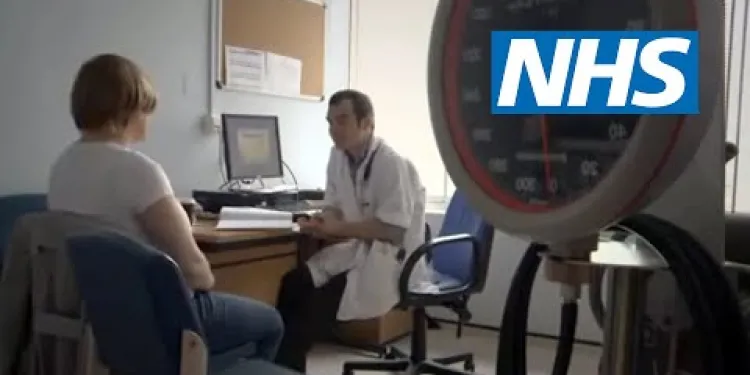
What should I do if I start bleeding during early pregnancy? | NHS
Relevance: 100%
-

Bleeding from the bottom rectal bleeding
Relevance: 60%
-
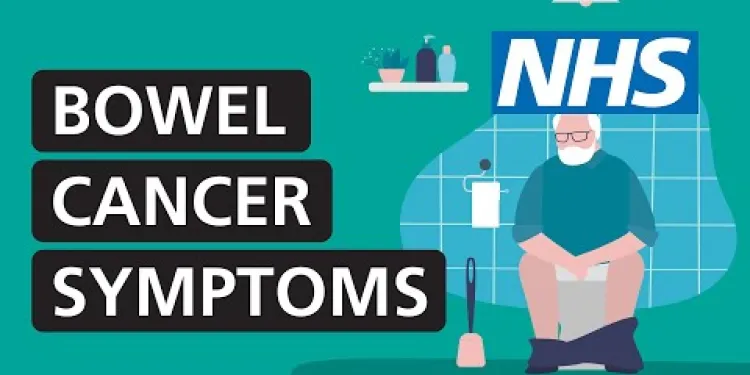
Bleeding from the bottom rectal bleeding
Relevance: 55%
-
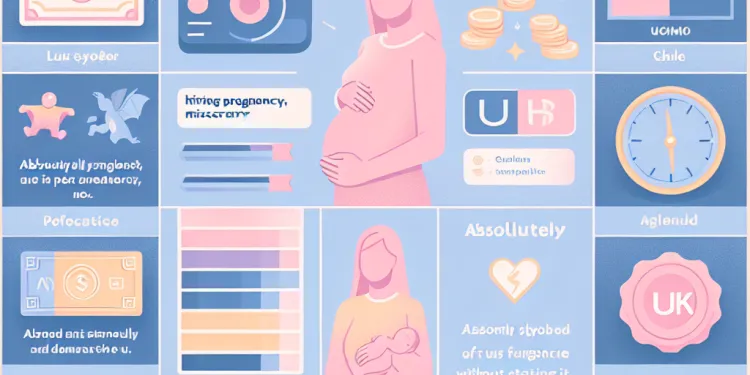
Can a pregnancy test detect a miscarriage?
Relevance: 48%
-

How soon can a pregnancy test detect pregnancy?
Relevance: 47%
-

What if my pregnancy test is negative and I still think I'm pregnant?
Relevance: 46%
-
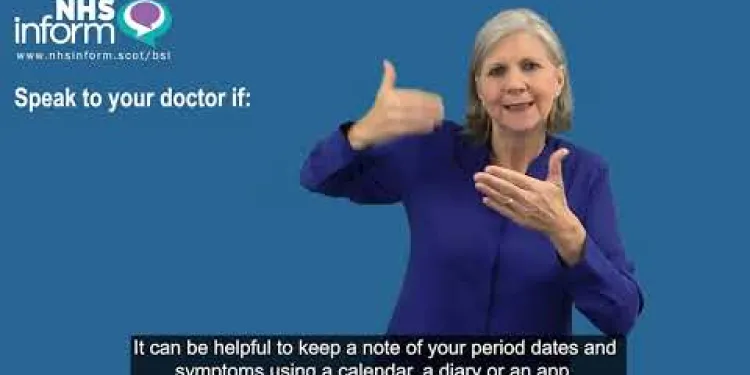
Heavy periods (heavy menstrual bleeding)
Relevance: 46%
-

What if my pregnancy test is positive?
Relevance: 44%
-

What is a pregnancy test?
Relevance: 43%
-
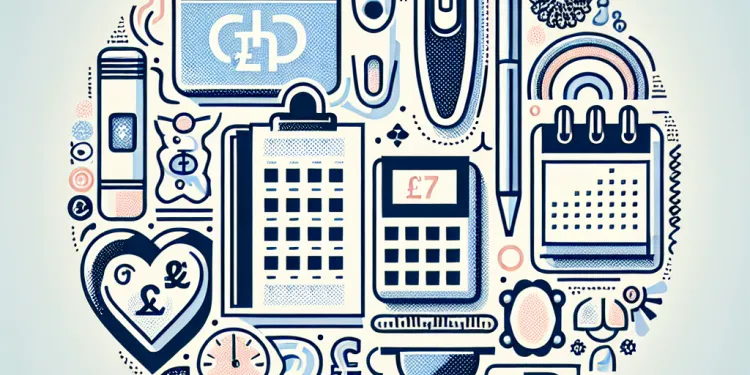
When should I take a pregnancy test?
Relevance: 42%
-

Can I continue running during pregnancy?
Relevance: 42%
-

What are the different types of pregnancy tests?
Relevance: 41%
-

How does a pregnancy test work?
Relevance: 40%
-

Do all pregnancy tests detect the same levels of hCG?
Relevance: 40%
-
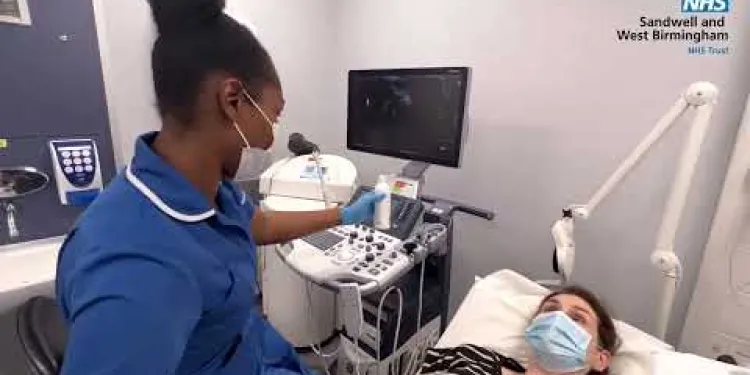
Post Menopausal Bleeding Clinic | A Guide to What Happens at An Appointment
Relevance: 40%
-

HIV and pregnancy | NHS
Relevance: 40%
-

Can stress affect a pregnancy test result?
Relevance: 40%
-

How does exercise benefit pregnancy?
Relevance: 40%
-
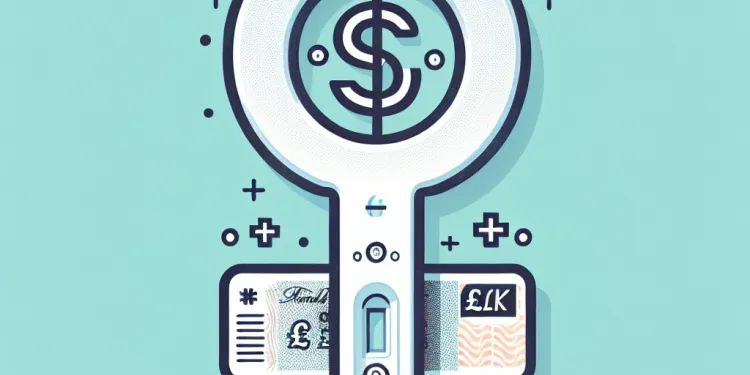
Can a pregnancy test expire?
Relevance: 39%
-

What should I do if I experience severe pain or bleeding after the test?
Relevance: 39%
-

Is cycling safe during pregnancy?
Relevance: 39%
-

What can cause a false positive pregnancy test?
Relevance: 39%
-

Can postnatal depression affect subsequent pregnancies?
Relevance: 39%
-
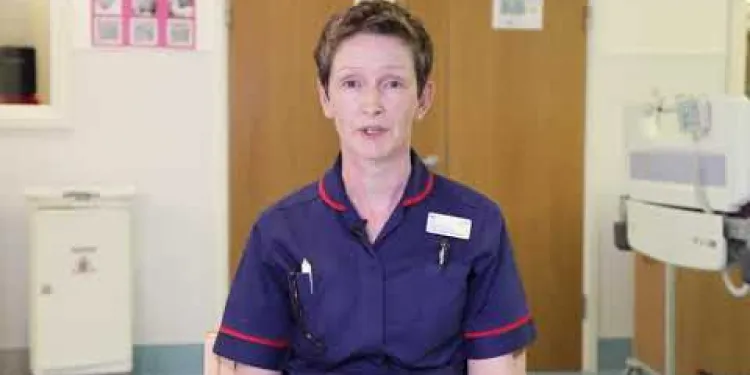
Gestational Diabetes during pregnancy
Relevance: 37%
-

Can medications affect pregnancy test results?
Relevance: 37%
-

Can drinking a lot of water affect pregnancy test results?
Relevance: 36%
-
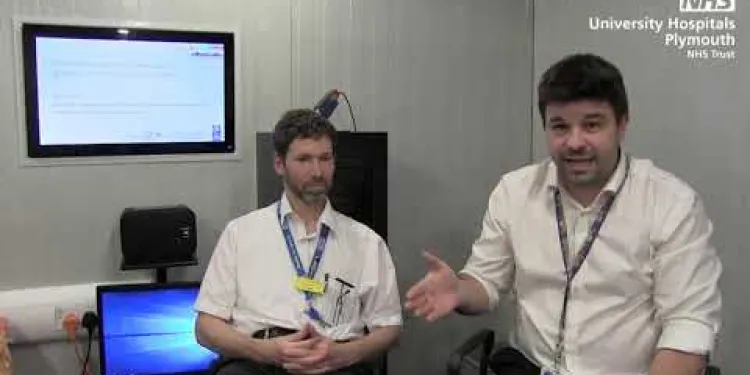
Glue Ear Pathway
Relevance: 36%
-
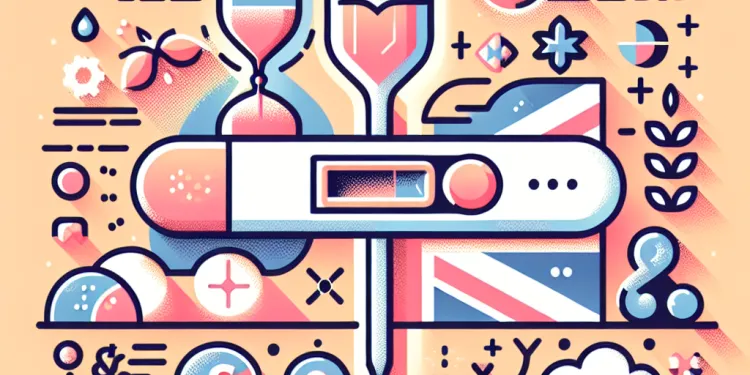
What should I do if I get unclear results on a pregnancy test?
Relevance: 36%
-

What exercises can I do during pregnancy?
Relevance: 35%
-

Are there any exercises to avoid during pregnancy?
Relevance: 35%
-
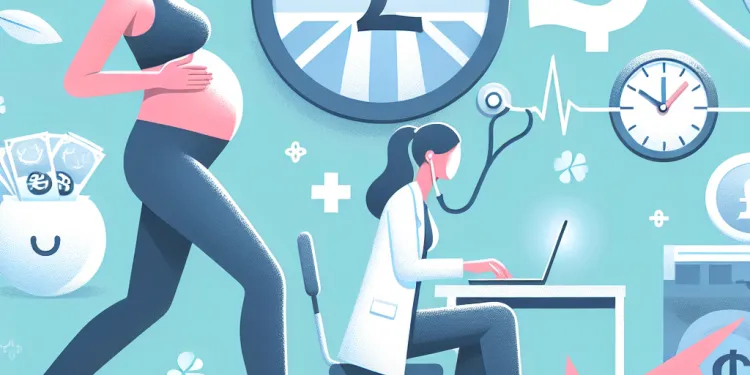
Do I need to consult a doctor before exercising during pregnancy?
Relevance: 35%
-

Are digital pregnancy tests more accurate than non-digital tests?
Relevance: 35%
-

Can I do abdominal exercises during pregnancy?
Relevance: 35%
-
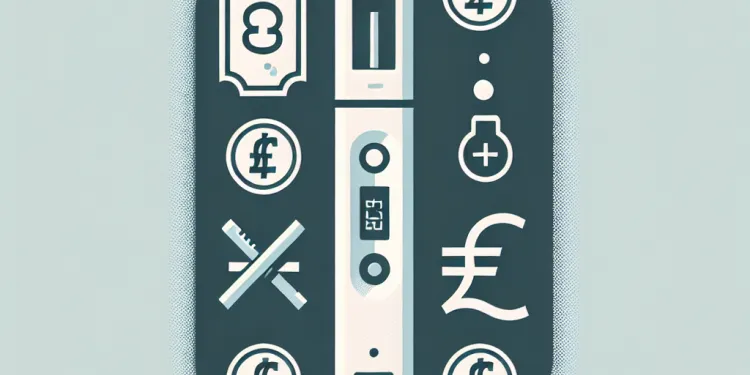
How long should I wait to read the results of a pregnancy test?
Relevance: 35%
-
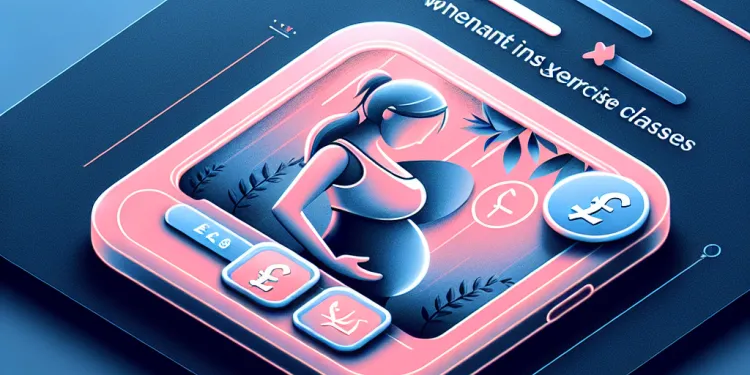
Can I take exercise classes during pregnancy?
Relevance: 35%
-

How can I ensure safety during pregnancy exercises?
Relevance: 34%
-
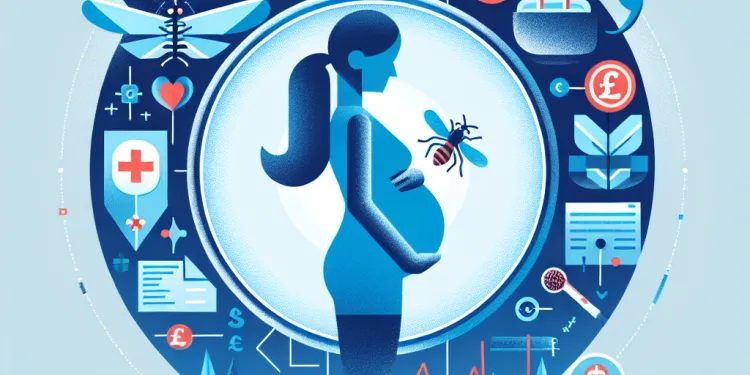
Can Zika virus affect pregnancy?
Relevance: 34%
-

Does IVF guarantee pregnancy?
Relevance: 34%
-

What should I wear for exercising during pregnancy?
Relevance: 34%
-

How often should I exercise during pregnancy?
Relevance: 34%
What Should I Do if I Start Bleeding During Early Pregnancy? | NHS
Stay Calm and Assess the Bleeding
Bleeding during early pregnancy can be alarming, but it is not always an indication of a serious problem. Approximately 20% of women experience some bleeding in the first 12 weeks of pregnancy. It is essential to remain calm and observe the color, amount, and duration of bleeding. Light spotting or brownish discharge may be less concerning than heavy bleeding or bright red blood. However, it is important to seek medical advice regardless of the amount or type of bleeding.Contact Your GP or Midwife
If you experience any bleeding during early pregnancy, inform your GP or midwife as soon as possible. They may ask you questions regarding your symptoms and medical history. Early assessment and guidance from healthcare professionals will help determine the cause of the bleeding and whether any immediate action is necessary.Seek Immediate Medical Attention if Necessary
Certain symptoms require urgent medical assessment. If bleeding is accompanied by severe abdominal pain, heavy bleeding, dizziness, or the passage of tissue, go to the nearest Accident & Emergency (A&E) department. These symptoms could indicate a miscarriage or an ectopic pregnancy, both of which need prompt medical intervention.Avoid Strenuous Activities
While waiting for medical advice or treatment, it is advisable to avoid strenuous activities. Resting and refraining from heavy lifting, exercise, and sexual intercourse can potentially minimize the risk of aggravating the bleeding. Follow specific recommendations provided by your healthcare provider.Undergo Recommended Tests and Scans
Your doctor may suggest several tests to determine the cause of the bleeding. Common assessments include a pelvic exam, blood tests to measure hormone levels, and ultrasound scans to check the baby's development and placement. These tests will help rule out serious conditions and provide a clearer understanding of the situation.Follow-Up Care
After the initial evaluation and treatment, schedule follow-up appointments with your GP or midwife to monitor your pregnancy's progress. Continuous observation ensures that any recurrent issues can be addressed promptly. Adhering to the advice provided by healthcare professionals is crucial for the well-being of you and your baby.Emotional Support
Experiencing bleeding during early pregnancy can be emotionally distressing. Seek support from your partner, family, and friends. Additionally, consider speaking with a counselor or joining a support group for pregnant women. Emotional well-being is key to managing stress and maintaining a positive outlook during this time. For more detailed guidance and support, always consult with NHS healthcare providers or visit the NHS website.What Should I Do if I Start Bleeding During Early Pregnancy? | NHS
Stay Calm and Look at the Bleeding
Bleeding in early pregnancy can be scary, but it doesn’t always mean something is wrong. About 20% of women have some bleeding in the first 12 weeks. Stay calm and look at the color, amount, and how long it lasts. Light spotting or brown color might not be as worrying as heavy bleeding or bright red blood. It is important to talk to a doctor no matter how much bleeding there is.Call Your Doctor or Midwife
If you bleed during early pregnancy, tell your doctor or midwife right away. They will ask about your symptoms and medical history. Getting help early will let doctors find out why it's happening and if you need to do anything right away.Get Help Fast if Needed
Sometimes you need help quickly. If you have bleeding with bad tummy pain, heavy bleeding, feel dizzy, or see tissues passing, go to the hospital. These may mean a miscarriage or ectopic pregnancy, and you need to see a doctor fast.Avoid Heavy Activities
While waiting for advice, don't do heavy activities. Rest and avoid lifting heavy things, exercising, or having sex. This might stop the bleeding from getting worse. Follow what your doctor says to do.Do the Tests the Doctor Suggests
Your doctor might ask for some tests to find out why you’re bleeding. These tests can include looking inside you, checking your blood, and doing an ultrasound to see the baby. These tests help make sure everything is okay.Follow-Up Care
After your first check-up and treatment, have more appointments with your doctor or midwife. This helps them keep an eye on your pregnancy. Following your doctor’s advice is important to keep you and your baby safe.Get Emotional Support
Bleeding can make you feel worried and sad. Talk to your partner, family, and friends. You can also speak with a counselor or join a group for pregnant women. Feeling good emotionally helps reduce stress. For more help and answers, always talk to NHS doctors or check the NHS website.Frequently Asked Questions
What should I do if I start bleeding during early pregnancy?
If you start bleeding during early pregnancy, you should contact your midwife, GP, or early pregnancy unit as soon as possible for advice. They can assess your symptoms and determine if further investigation is needed.
Is bleeding during early pregnancy always a sign of miscarriage?
No, bleeding during early pregnancy is not always a sign of miscarriage. Some women experience light spotting and go on to have a healthy pregnancy. However, it's important to seek medical advice to rule out any serious issues.
How common is bleeding in early pregnancy?
Bleeding in early pregnancy is relatively common, affecting about 1 in 4 pregnant women. While it can be concerning, it doesn't always lead to miscarriage.
What specific symptoms should prompt me to seek immediate medical attention?
You should seek immediate medical attention if you experience heavy bleeding, severe abdominal pain, dizziness, or fainting. These could be signs of a more serious condition such as an ectopic pregnancy or miscarriage.
Can I still be pregnant if I have bleeding?
Yes, it is possible to still be pregnant even if you have some bleeding. Many women who experience bleeding in early pregnancy go on to have healthy pregnancies.
What tests might the healthcare provider do if I report bleeding during early pregnancy?
Your healthcare provider might perform a pelvic exam, an ultrasound, and blood tests to check your hCG levels to assess the health of your pregnancy.
What is the most common cause of bleeding in early pregnancy?
The most common cause of bleeding in early pregnancy is implantation bleeding, which occurs when the fertilized egg attaches to the lining of the uterus.
Can sexual activity cause bleeding during early pregnancy?
Yes, sometimes sexual activity can cause light bleeding or spotting due to the increased blood flow to the cervix and vaginal tissues during pregnancy.
Should I avoid exercise if I experience bleeding in early pregnancy?
It may be a good idea to avoid strenuous exercise and heavy lifting if you're experiencing bleeding in early pregnancy, but you should follow the specific advice of your healthcare provider.
Can stress cause bleeding in early pregnancy?
While stress itself does not directly cause bleeding, it can affect your overall health. It's important to find ways to manage stress during pregnancy and consult with your healthcare provider if you have concerns.
Are there any medications that can cause bleeding during early pregnancy?
Certain medications, such as anticoagulants or blood thinners, can increase the risk of bleeding. You should always inform your healthcare provider about any medications you're taking.
What is the difference between spotting and bleeding in early pregnancy?
Spotting is usually light, similar to the beginning or end of a menstrual period, and often not enough to fill a pad. Bleeding is heavier and may require a sanitary pad.
Is it safe to use tampons if I experience bleeding during early pregnancy?
No, it is not advisable to use tampons during pregnancy if you experience bleeding. Use sanitary pads instead and consult your healthcare provider.
Can bleeding affect the baby’s health?
Light spotting or bleeding doesn't usually affect the baby's health, but heavy or persistent bleeding may indicate a problem. It's important to seek medical advice to ensure both your and your baby's health.
What follow-up care should I receive after experiencing early pregnancy bleeding?
Your healthcare provider may schedule follow-up appointments or additional ultrasounds to monitor the progress of your pregnancy and ensure that all is well.
What should I do if I start bleeding in early pregnancy?
If you see blood when you are pregnant, it can feel scary. Here is what you can do:
- Tell an adult you trust: Talk to someone like a family member or a friend.
- Call your doctor: Your doctor can help and tell you what to do.
- Rest: Try to lie down and relax.
Here are some things that may help make it easier:
- Use a calendar: Mark the days when you see blood. This helps you share the right information with your doctor.
- Write down your feelings: This helps you feel less worried.
- Ask questions: It is okay to ask your doctor anything you're curious about.
If you start bleeding when you are pregnant and it's early on, talk to your midwife, GP, or early pregnancy unit quickly. They can help you understand what is happening and see if you need more checks.
Is bleeding in early pregnancy always a sign of losing the baby?
No, bleeding in early pregnancy does not always mean a miscarriage. Sometimes, women have a little bleeding but still have a healthy baby. It is important to talk to a doctor to make sure everything is okay.
If you find it hard to understand some words, you can use tools like a dictionary to look them up. You could also ask someone you trust to explain things to you. Highlighting or using a different color for tricky words can make them stand out, helping you remember them better.
How often do people bleed in early pregnancy?
Bleeding in early pregnancy is not rare. Many people have it.
If you are worried, it is good to talk to a doctor. They can help you understand more.
Using a notebook to write questions or worries can be helpful. This way, you remember what to ask the doctor.
Bleeding in early pregnancy happens a lot. It affects 1 in 4 pregnant women. It can be worrying, but it doesn't always mean there will be a miscarriage.
If you're pregnant and bleeding, tell a doctor. You can also use a tool like a calendar to write down how you feel each day. Talking with friends or family can help, too.
When should I see a doctor right away?
If you have heavy bleeding, bad stomach pain, feel dizzy, or faint, go to the doctor or hospital right away. These might be signs of something serious like a pregnancy problem.
Can I be pregnant if I am bleeding?
Yes, you might still be pregnant if you have some bleeding. Some women bleed a little when they are pregnant. This bleeding does not always mean a problem.
If you have bleeding and think you might be pregnant, talk to a doctor or nurse. They can help you.
You can use tools like a calendar to track your bleeding and symptoms. This can help you remember and share details with your doctor or nurse.
Yes, you can still be pregnant even if you see some bleeding. Many women who bleed a little early in pregnancy go on to have healthy babies.
What tests might the doctor do if I have bleeding in early pregnancy?
If you have bleeding in early pregnancy, the doctor might do some tests. These tests help the doctor know what is happening. Here are some tests the doctor might do:
1. Ultrasound: This is a special picture of your belly. It helps the doctor see your baby.
2. Blood Test: This test checks the amount of certain things in your blood to make sure they are okay.
3. Pelvic Exam: The doctor might look inside to see how everything is doing.
These tests can help the doctor make sure you and your baby are healthy. Talking to the doctor if you are worried is important. You can also bring someone you trust with you to the doctor for support.
Your doctor might check your body to see how your pregnancy is going. They could look at your belly, use a special camera to see inside, or take a little bit of your blood for a test. This helps them make sure everything is okay with the baby.
Why do many women bleed in early pregnancy?
Some women bleed when they are pregnant.
This happens most often at the start.
It is important to talk to a doctor if you are worried.
Using pictures or talking to someone who understands can help you feel better.
When you are pregnant, sometimes you might see some blood. This can happen when the baby attaches to the mommy’s tummy inside. This is called implantation bleeding, and it is normal.
Can sex make you bleed when you are pregnant?
Yes, sometimes having sex can make a little bit of blood come out. This is because there is more blood in the body parts like the cervix and vagina when someone is pregnant.
Is it safe to exercise if I notice bleeding at the start of pregnancy?
It can be scary to see blood when you are pregnant, especially early on. It is important to talk to a doctor if you notice any bleeding.
- Rest and take it easy until you speak with a doctor.
- A doctor can help you know if it is okay to exercise or if you should stop for now.
- Always tell an adult you trust if you are worried.
Some helpful tools can be:
- Talking to a doctor, nurse, or midwife.
- Taking slow, deep breaths to relax if you feel worried.
- Writing down questions for your doctor, so you remember them.
If you are bleeding early in your pregnancy, you might want to avoid hard exercise and lifting heavy things. It's best to listen to what your doctor or nurse tells you to do.
Can feeling stressed make you bleed when you are pregnant?
Stress does not make you bleed. But being stressed can affect your health. It is important to find ways to feel calm and relax while you are pregnant. Talk to your doctor if you are worried.
Try these to feel better:
- Take slow, deep breaths.
- Go for a gentle walk outside.
- Listen to soothing music.
- Talk to someone you trust.
Can some medicines make you bleed when you are early in pregnancy?
Some medicines might make you bleed when you are just starting to be pregnant. If you are pregnant and bleeding, talk to your doctor. They can help you understand why and what to do next. It is best to ask a grown-up or use a computer app to read and understand this better if you need help.
Some medicines, like blood thinners, can make you bleed more easily. Tell your doctor about any medicines you take.
What is the difference between spotting and bleeding in early pregnancy?
Spotting: Spotting is when you see a little bit of blood. It might be just a few drops. This can happen when you're pregnant and is usually okay.
Bleeding: Bleeding is when there is more blood, like a period. It can be a sign that something might be wrong. If you bleed, it’s important to talk to a doctor.
Helpful tips:
- If you see blood, write down when and how much you see.
- Tell a trusted adult or a doctor if you are worried.
- Stay calm and rest.
Spotting is when a little bit of blood comes out. It's like when a period starts or finishes. You might not need a pad because it's so light. Bleeding is when a lot of blood comes out, so you might need a pad for that.
Can I use tampons if I have bleeding during early pregnancy?
If you are pregnant and see blood, talk to a doctor. Do not use tampons. Use pads instead. They are safer. A doctor can help you and tell you what to do.
Remember to ask for help if you are not sure. You can write down questions to take to the doctor.
No, you should not use tampons if you have bleeding and are pregnant. Use pads instead. Talk to your doctor for advice.
Can bleeding make the baby sick?
If you are bleeding when you are pregnant, it is important to tell a doctor. Go to the doctor or hospital so they can help you and the baby.
Here are some things that might help:
- Ask someone to go with you to the doctor.
- Write down what the doctor says so you remember.
- Ask the doctor if you do not understand something.
Sometimes you might see a little bit of bleeding. This usually doesn’t hurt the baby. But if there is a lot of bleeding or it doesn’t stop, there might be a problem. It’s important to talk to a doctor to make sure you and the baby are okay.
What care do I need after having bleeding early in pregnancy?
If you have bleeding in early pregnancy, it is important to see a doctor. They can help you understand what is happening and what you need to do next.
Here are some things you might do:
- Go for check-ups with your doctor to make sure everything is okay.
- Get some tests or scans to see how your pregnancy is doing.
- Talk to your doctor if you feel worried or upset.
You can also ask someone you trust to go with you for support. They can help you understand what the doctor says and make you feel better.
Your doctor might ask you to come back for more check-ups or ultrasound pictures to make sure you and your baby are healthy.
Useful Links
This website offers general information and is not a substitute for professional advice.
Always seek guidance from qualified professionals.
If you have any medical concerns or need urgent help, contact a healthcare professional or emergency services immediately.
- Ergsy carfully checks the information in the videos we provide here.
- Videos shown by Youtube after a video has completed, have NOT been reviewed by ERGSY.
- To view, click the arrow in centre of video.
- Most of the videos you find here will have subtitles and/or closed captions available.
- You may need to turn these on, and choose your preferred language.
- Go to the video you'd like to watch.
- If closed captions (CC) are available, settings will be visible on the bottom right of the video player.
- To turn on Captions, click settings .
- To turn off Captions, click settings again.
More Items From Ergsy search
-

What should I do if I start bleeding during early pregnancy? | NHS
Relevance: 100%
-

Bleeding from the bottom rectal bleeding
Relevance: 60%
-

Bleeding from the bottom rectal bleeding
Relevance: 55%
-

Can a pregnancy test detect a miscarriage?
Relevance: 48%
-

How soon can a pregnancy test detect pregnancy?
Relevance: 47%
-

What if my pregnancy test is negative and I still think I'm pregnant?
Relevance: 46%
-

Heavy periods (heavy menstrual bleeding)
Relevance: 46%
-

What if my pregnancy test is positive?
Relevance: 44%
-

What is a pregnancy test?
Relevance: 43%
-

When should I take a pregnancy test?
Relevance: 42%
-

Can I continue running during pregnancy?
Relevance: 42%
-

What are the different types of pregnancy tests?
Relevance: 41%
-

How does a pregnancy test work?
Relevance: 40%
-

Do all pregnancy tests detect the same levels of hCG?
Relevance: 40%
-

Post Menopausal Bleeding Clinic | A Guide to What Happens at An Appointment
Relevance: 40%
-

HIV and pregnancy | NHS
Relevance: 40%
-

Can stress affect a pregnancy test result?
Relevance: 40%
-

How does exercise benefit pregnancy?
Relevance: 40%
-

Can a pregnancy test expire?
Relevance: 39%
-

What should I do if I experience severe pain or bleeding after the test?
Relevance: 39%
-

Is cycling safe during pregnancy?
Relevance: 39%
-

What can cause a false positive pregnancy test?
Relevance: 39%
-

Can postnatal depression affect subsequent pregnancies?
Relevance: 39%
-

Gestational Diabetes during pregnancy
Relevance: 37%
-

Can medications affect pregnancy test results?
Relevance: 37%
-

Can drinking a lot of water affect pregnancy test results?
Relevance: 36%
-

Glue Ear Pathway
Relevance: 36%
-

What should I do if I get unclear results on a pregnancy test?
Relevance: 36%
-

What exercises can I do during pregnancy?
Relevance: 35%
-

Are there any exercises to avoid during pregnancy?
Relevance: 35%
-

Do I need to consult a doctor before exercising during pregnancy?
Relevance: 35%
-

Are digital pregnancy tests more accurate than non-digital tests?
Relevance: 35%
-

Can I do abdominal exercises during pregnancy?
Relevance: 35%
-

How long should I wait to read the results of a pregnancy test?
Relevance: 35%
-

Can I take exercise classes during pregnancy?
Relevance: 35%
-

How can I ensure safety during pregnancy exercises?
Relevance: 34%
-

Can Zika virus affect pregnancy?
Relevance: 34%
-

Does IVF guarantee pregnancy?
Relevance: 34%
-

What should I wear for exercising during pregnancy?
Relevance: 34%
-

How often should I exercise during pregnancy?
Relevance: 34%


